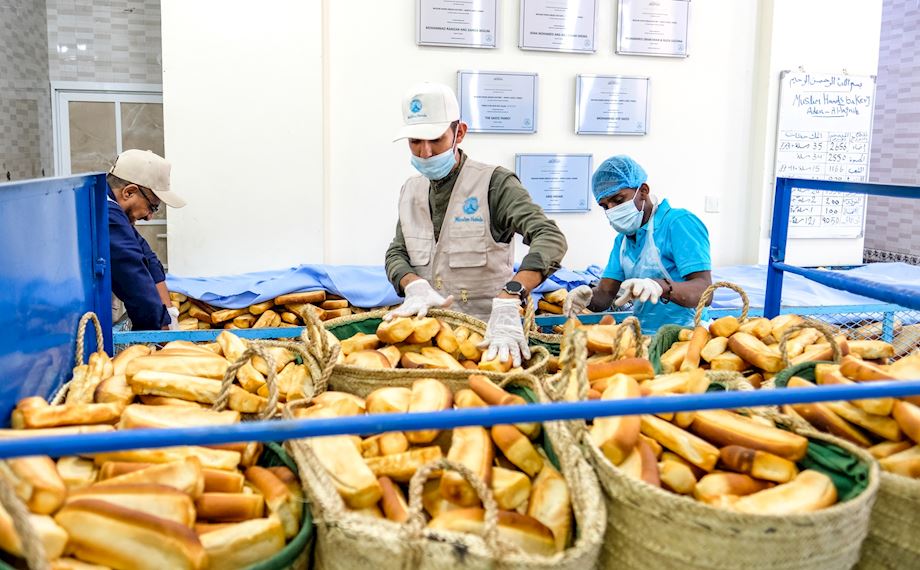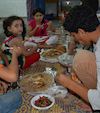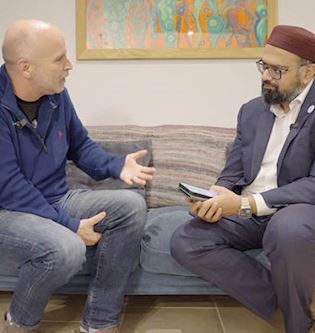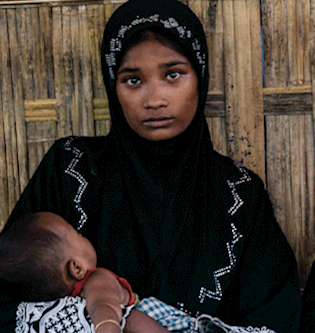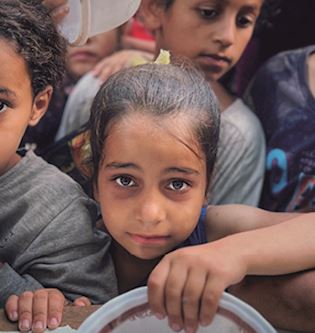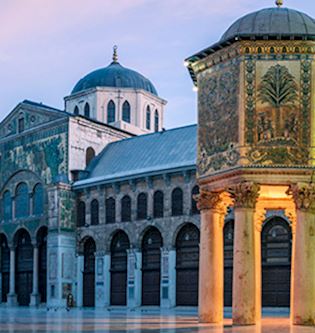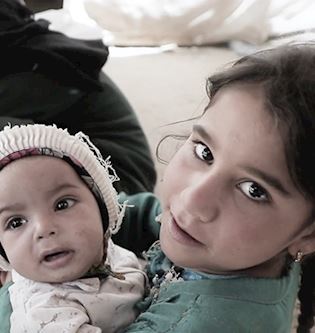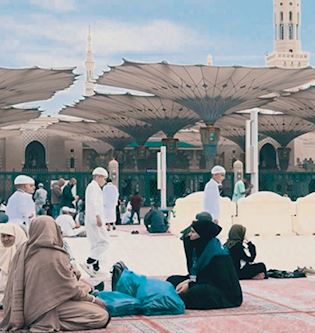Seven Tips for the First 10 Days of Ramadan

Ramadan is the month of mercy, a time when we have the opportunity to draw closer to Allah (swt) and be forgiven for our sins through the simplest of actions. The first 10 days of Ramadan are the best time for seeking this mercy, as the Prophet (saw) said:
'And it is a month, the first (part) of which is mercy, the middle (part) of which is forgiveness and the last (part) of which is freedom from the Fire'. (Ibn Khuzaimah)
Here are our tips for getting the most out of the first 10 days of Ramadan, as well as some du’as for seeking Allah’s mercy:
1. Make du’a at iftar time
The Prophet (saw) said, 'Whatever is prayed for at the time of breaking the fast is granted and never refused'. (Tirmidhi)
When you sit down to iftar, take the time to seek Allah’s mercy and forgiveness before breaking your fast - we know you’re hungry, but this is the best time to do it! Make sure you supplicate using the names Ar-Rahman (the Most Compassionate) and Ar-Rahim (the Most Merciful).
Read more about the blessings of iftar on our previous blog post.
2. Make du’a for others to receive mercy
You should also pray for mercy and guidance for your loved ones during the first ten days - this will allow both you and them to benefit from the blessings of this time.
The Messenger of Allah (saw) said, 'There is no Muslim servant who supplicates for his brother behind his back but that the angel says, "And for you the same"'. (Muslim)
3. Keeping good relations with your family
During the first ten days, take the time to visit or call family members who you don’t often speak to, and make sure you seek forgiveness from anyone you’ve had a falling out with. It is important for you to take the first step towards building bridges, as being close with your relatives will bring you closer to Allah.
The Messenger of Allah (saw) said, 'The merciful are shown mercy by Ar-Rahman. Be merciful on the earth, and you will be shown mercy from Who is above the heavens. The womb is named after Ar-Rahman, so whoever connects it, Allah connects him, and whoever severs it, Allah severs him'. (Tirmidhi)
The womb is named after Ar-Rahman (the Most Compassionate), so we should be merciful and compassionate towards those connected to us through the womb i.e. our family and extended family. Show mercy towards your family, and Allah will show mercy towards you.
4. Increase your dhikr
This is a really easy way to seek Allah’s mercy: after every Salah, recite 'Subhan-Allahi wa bi-hamdi-hi' 20 times (i.e. 100 times a day). Reciting this simple dhikr will obliterate your sins, even if they are as much as the foam of the ocean. (Muslim)
Dhikr in general is a good way to draw closer to Allah in Ramadan, as He says in the Noble Qur’an, 'So remember Me; I will remember you'. (The Noble Qur’an, 2:152)
5. Encourage family to pray at night
Many of us are exhausted by fasting during Ramadan, and it can be difficult to motivate ourselves to wake up at night to pray and worship. However, encouraging our family to worship at night is an important part of seeking Allah’s mercy - and it can help us get motivated too!
The Messenger of Allah (saw) said, 'May Allah have mercy on a man who gets up at night and prays, then he wakes his wife and she prays, and if she refuses he sprinkles water in her face. And may Allah have mercy on a woman who gets up at night and prays, then she wakes her husband and prays, and if he refuses she sprinkles water in his face'. (Sunan An-Nasa’i)
Spread the mercy of Ramadan by encouraging others to worship at night!
6. Recite these du’as for mercy
Here are a few du’as you should be reciting to seek Allah’s mercy in the first 10 days:
'رَّبِّ اغْفِرْ وَارْحَمْ وَأَنتَ خَيْرُ الرَّاحِمِينَ'
Rabbi ighfir warham wa anta khair-ur-raahimeen
'And [O Prophet] say, "My Lord, forgive and have mercy, and You are the best of the merciful"'. (Qur’an, 23:118)
'اللّهُـمَّ إِنَّـي أَسْـأَلُـكَ بِرَحْمَـتِكَ الّتِي وَسِـعَتْ كُلَّ شيْء، أَنْ تَغْـفِرَ لي'
Allaahumma inni as’aluka bi-rahmatika al-lati wasi’at kulla shay’in an taghfira li
'O Allah, I ask You by Your mercy which envelopes all things, that You forgive me'.
'اللَّهُمَّ اغْفِرْ لِي وَارْحَمْنِي وَأَلْحِقْنِي بِالرَّفِيقِ الأَعْلَى'
Allahuma ighfir li warhamni wa alhiqni bir-rafiq-il-a’laa
Aisha (ra) said, 'I heard the Messenger of Allah (saw) saying at his death, "O Allah, forgive me and have mercy on me, and join me with the Highest Company"'. (Tirmidhi)
7. Show mercy to others
While seeking Allah’s mercy, it is important to remember that the Messenger of Allah (saw) said, 'Whoever does not show mercy to the people, Allah will not show mercy to him'. (Tirmidhi)
This means that showing mercy to others is an essential part of seeking Allah’s mercy. Without it, you may miss out on the blessings of the first 10 days. Mercy can mean talking kindly to others, offering people your seat on the bus even when you’re fasting and, of course, giving Sadaqah to those in need out of the mercy of your heart.
Showing mercy and love to children is particularly important, as it is from the Sunnah of the Prophet (saw). In the first 10 days, why not donate a Ramadan Food Parcel to feed refugee children or those living in poverty, or begin your orphan sponsorship to support orphans who need your help?
Remember, the Prophet (saw) said, 'Ramadan is the month of my Ummah' [Suyuti]. As you spread mercy, hope and relief to our brothers and sisters, we pray that Allah showers you with mercy, hope and relief, amin!
Muslim Hands is an award-winning charity, established in 1993 to provide emergency relief and tackle the root causes of poverty. This Ramadan, we can help you send iftar across the world, sponsor orphans in Yemen, Palestine and elsewhere and even build your own water well. For more ways to give mercy, visit our Appeals page or call 0115 911 7222.





